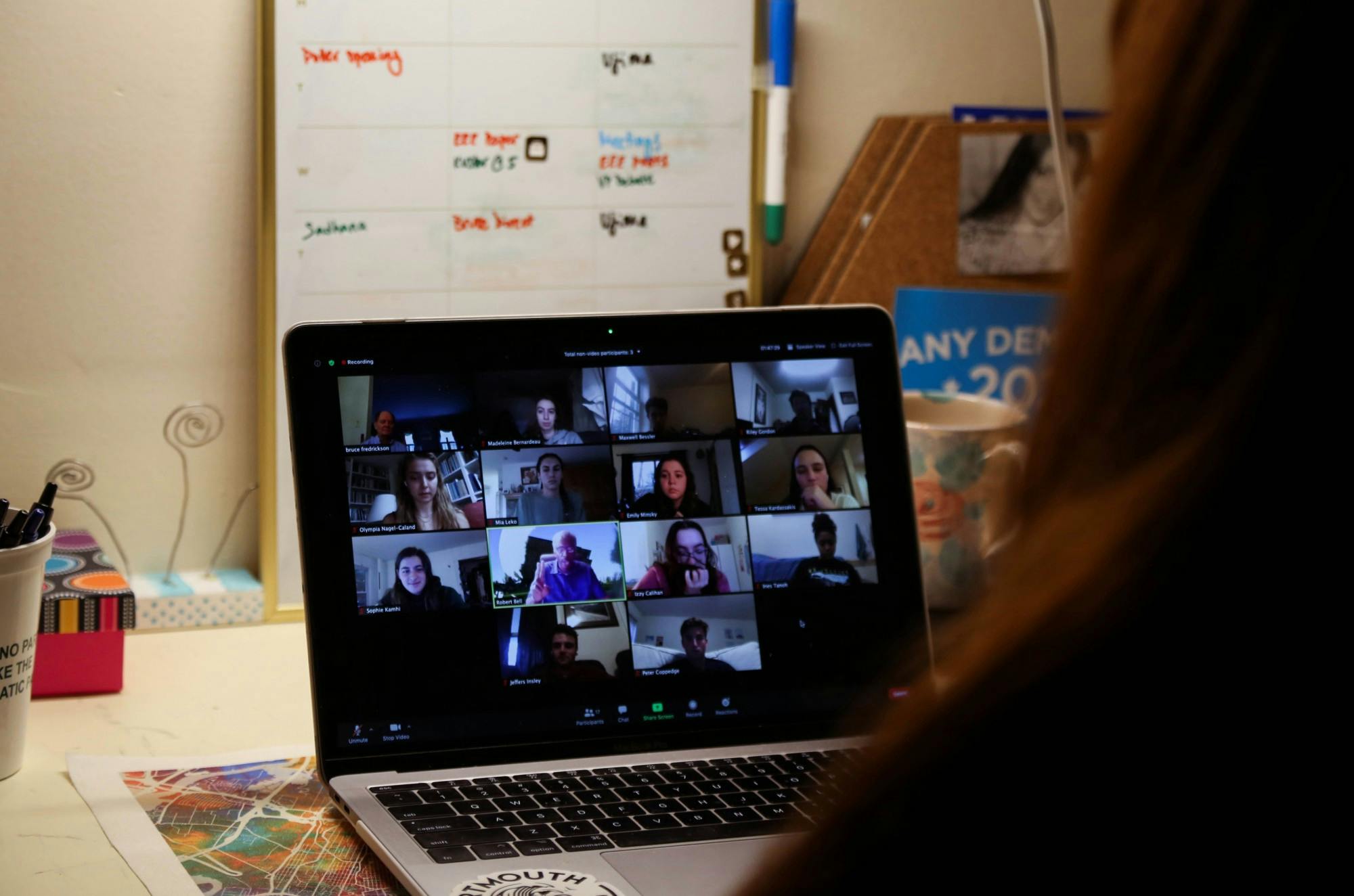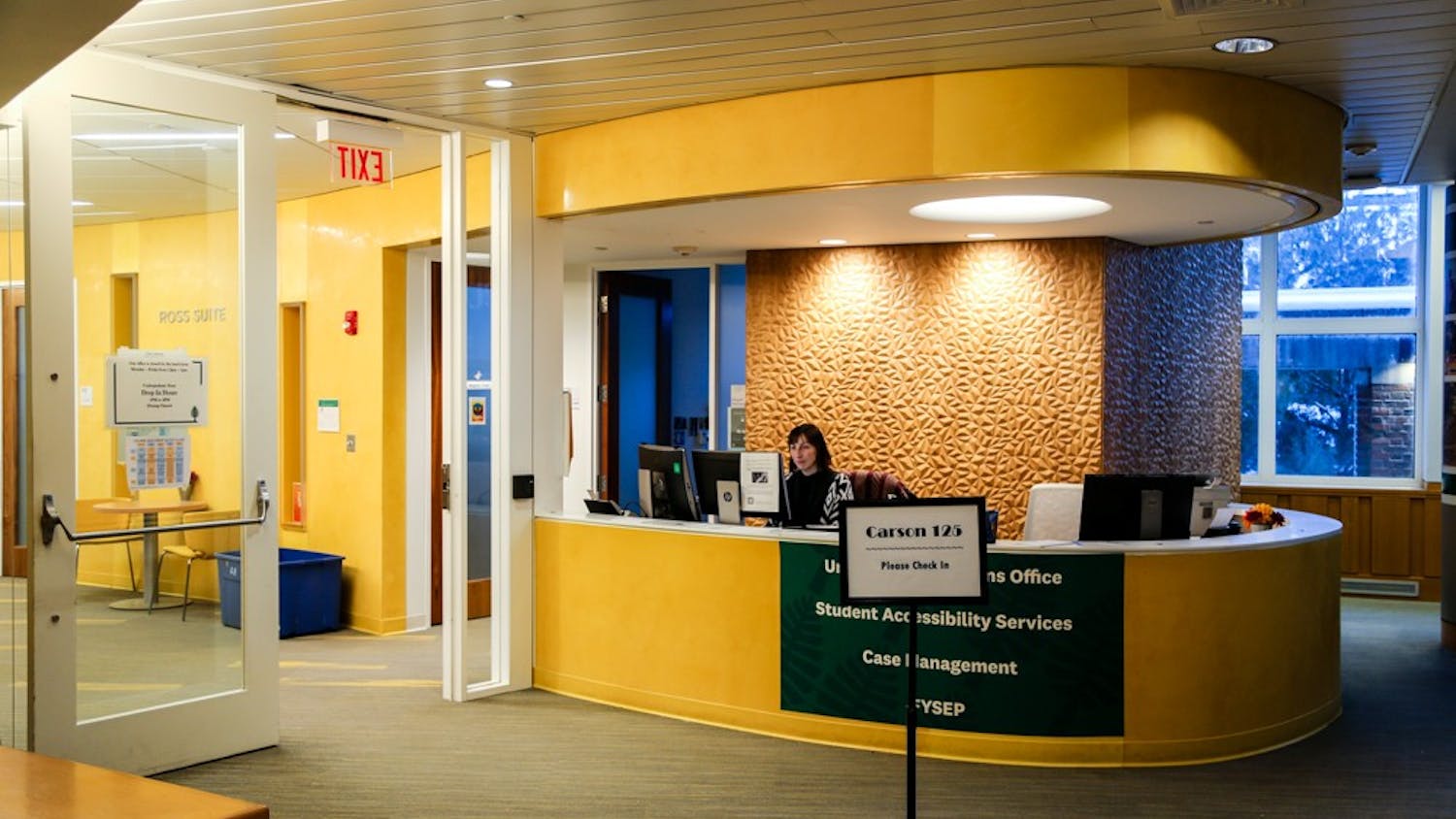For many students on campus, the recent COVID-19 outbreak has made for a difficult end to an already challenging term of remote learning.
With mandated quarantine and the closure of study spaces coinciding with the end of the term, Student Assembly and the Dartmouth Student Union penned proposals for an optional pass/fail grading system or an expanded non-recording option, respectively, hoping to to ease the anxiety of students struggling to prepare for finals. However, the College announced on Friday that there would be no official change in grading policies for this term.
In an email to the student body, Dean of the College Kathryn Lively wrote that “[grading] policies cannot be changed this late in the term,” though the Committee on Instruction “has agreed to provide faculty members with additional flexibility” in terms of the deadline to submit final coursework. She added that the deadline to request an “Incomplete” for a class has been moved back to March 19.
“College academic support, medical, wellness and faith-based support resources are available to any student who needs help,” Lively wrote in an email to The Dartmouth on Sunday. “Further, if any student needs more time to complete their work, they are encouraged to reach out to their individual faculty members and their undergraduate dean to discuss possible accommodations.”
In their letters, both SA and the DSU aimed to address the struggles of on-campus students, who have spent the past week under phase two of quarantine protocols following a COVID-19 outbreak that saw over 140 active student cases at its peak. The quarantine is currently set to end at 8 a.m. on Monday morning, though many students who either have the virus or have been identified as a close contact remain in quarantine or isolation housing.
Maggie MacDonald ’23, who is living on campus this term and signed the DSU’s petition, explained that even though “finals is stressful every term,” limited social interaction with her peers has made the past few weeks especially difficult.
“I feel like, especially at Dartmouth, there's this sense of camaraderie around how stressed we all are … and when you're alone in your room and you can't even grab dinner with a friend, it definitely feels more isolating,” MacDonald said.
The DSU petition, which demanded the option for students to request the NRO for any class at any time before the finals period, garnered 683 student signatures and 91 faculty and staff signatures.
According to DSU members, the organization was given no advance warning that their proposal had been rejected and learned of the news at the same time as the rest of campus.
“The Committee on Instruction couldn’t even give us the courtesy of a response or a rationale for why they decided to not adopt either our or Student Assembly's proposals,” said DSU member Hannah Kadin ’23. “The email from Dean Lively is the only information that any student on this campus has as for why we don’t get academic accommodations mandated institutionally.”
Kadin said that since the administration has made it clear it will not adopt an alternate grading policy for this term, the DSU is shifting its efforts to appeal to professors through individualized emails and has been providing recommendations for how to structure classes, final projects and exams.
“The reason that we’re now trying to contact faculty directly is just going back to the general sense of frustration that I think we all share right now,” Kadin said. “We hope that at least making it known to all faculty as much as possible why we think we need academic accommodations will make this finals period a lot more manageable for everybody taking classes.”
Sophia He ’23, who signed the DSU petition, said she thinks it is “really important for professors to be aware of students’ situations.” For example, she has two final exams scheduled during the same three-hour period, which is “really stressing [her] out.”
“If professors are willing to have flexibility during finals week, then that would probably take some pressure off students,” she said.
He said that her religion professor, for example, “is just a very nice, understanding person,” and that when another student approached her about a missing midterm essay, the professor was accommodating.
“She just said, ‘Don’t worry — you can still get it in,’ so that’s at least something,” He said.
Some professors — such as ENGL 2, “Literary History II: Literature from the Mid-17th Century Through the 19th Century” — have granted extensions on coursework due during the last week.
Rather than writing a petition, SA emailed its proposal for an optional pass/fail policy to Dean of Faculty Elizabeth Smith and other administrators, addressing concerns like library access and students’ mental health.
SA vice president Jonathan Briffault ’21 said that SA is “very disappointed” that the administration is not adopting its policy or the DSU’s policy, though Lively’s announcement was “not surprising” in the context of conversations between SA members and administrators over the past week and a half.
Briffault also said that while the library’s scheduled reopening on Monday will hopefully alleviate some students’ concerns about their ability to study, the “obvious mental health challenges” students are facing may be more difficult to address.
Students have expressed that mental health impacts due to the virus outbreak and second quarantine could impact their performance during the finals period.
“All of the things happening during this term make it a lot harder than usual for students to focus,” said He, who is living on campus. “And also, winter is an especially hard term because there's nine weeks instead of 10, and there was traveling two weeks into the term when we all had to move here, and there’s seasonal depression. So I feel like it wouldn’t be fair to a lot of students if we just treated it like a regular term.”
MacDonald noted that she wished the administration would stop “trying to project this sense that we have it all under control.”
“What I’ve been looking for this whole time is just honesty,” she said. “Trying to make it seem like everything's gonna be OK — it’s not what we need.”
Lively wrote that the College has been “transparent about the scale of the outbreak and the implications for the campus and greater community.”
“All of us have been concerned since the beginning of the pandemic about the physical, mental health and logistical impacts of the current situation on the student experience,” Lively wrote. “… I think we all agree that circumstances are far from normal and that we will all need to do our part to reduce the risk of a recurrence.”

Lauren ('23) is news executive editor for The Dartmouth. She is from Bethesda, Maryland, and plans to major in government and minor in public policy.




